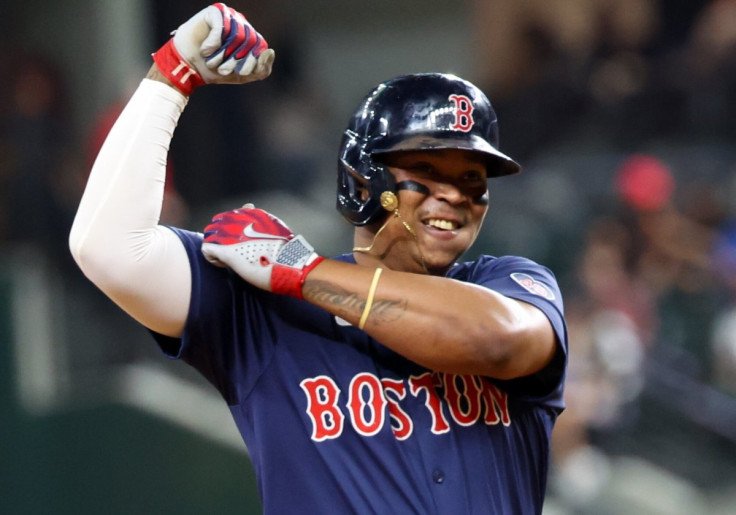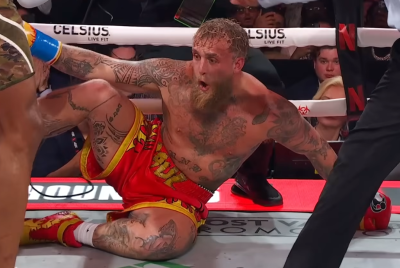Why Did Rafael Devers Leave Boston? Shocking Trade Rumours Explained
Devers' exit from Boston may have been driven by more than just roster strategy

The Boston Red Sox shocked Major League Baseball when they traded star third baseman Rafael Devers to the San Francisco Giants in mid-June 2025. While the move was officially framed as a strategic decision, mounting evidence suggests the trade may have been the result of internal tensions and player resistance. Was this a calculated exit by Devers himself?
Rafael Devers: A Star Still in His Prime
Rafael Devers, 28, was far from a declining asset. A three-time All-Star and Silver Slugger, he had been one of Boston's most consistent offensive producers since his debut in 2017. He played a key role in the club's 2018 World Series title and had grown into a fan favourite at Fenway Park.
In the 2025 season, Devers was hitting .272 with 15 home runs and an impressive .905 OPS through 73 games. Those numbers hardly suggest a player on the downturn. On paper, there was no sporting reason to part ways with one of the American League's most potent bats.
Trouble Behind the Scenes
Despite his on-field success, signs of strain had begun to emerge behind the scenes. Following the off-season acquisition of veteran Alex Bregman, the Red Sox considered shifting Devers to designated hitter or first base, especially after Triston Casas suffered a mid-season injury.
Devers, however, reportedly resisted both suggestions. According to Yahoo Sports, he expressed reluctance to move from third base, the position he had manned for his entire career. While not a formal trade request, his resistance created what insiders described as a 'clubhouse dilemma.'
Such position-related conflicts are not uncommon in baseball, but they can lead to larger issues when a franchise player is unwilling to adapt.
A Quiet Exit Strategy?
Did Rafael Devers force Boston's hand? He may not have publicly demanded a trade, but his unwillingness to accommodate the team's changing roster could be interpreted as a push for the door. As reported by MLB Trade Rumors, the relationship between Devers and the Red Sox had 'broken down quite publicly' over several months, centred on his refusal to move from third base after the signing of Alex Bregman, and again after declining a shift to first base following Triston Casas's injury. In modern professional sports, star athletes often exert influence off the field without formally demanding a trade.
What Boston Gained
In return, the Red Sox acquired four promising players: pitchers Jordan Hicks, Kyle Harrison, and Jose Bello, along with outfielder James Tibbs. The deal also offloaded Devers' massive contract, reportedly worth over £231 million ($313 million) through 2034. According to ESPN, the Red Sox were motivated by both financial flexibility and a desire to rebuild with younger, controllable talent.
While the package includes valuable prospects and long-term financial flexibility, the departure of Devers has sparked outrage among Boston fans. On social media, reactions poured in, ranging from disbelief to outright anger, with many questioning the club's direction and leadership.
whoever accepted this in Boston has to be fired 😭
— proud ranger fan (@RangerApologist) June 15, 2025
For many, the move signalled more than just a rebuild; it marked the loss of a homegrown star still in his prime. The decision has not only raised eyebrows among analysts but also deepened the frustration of a fanbase already weary of front office decisions. Some believe the trade reflects deeper clubhouse tensions, while others see it as a sign that Boston may be prioritising cost-cutting over contention.
Fallout or Forward Thinking?
Did Rafael Devers orchestrate his exit, or did Boston seize a chance to reset? The trade likely stemmed from shared interests a frustrated star and a team seeking flexibility. Whatever the motive, the move has reshaped the Red Sox and sparked league-wide debate. Only time will tell which side came out on top.
© Copyright IBTimes 2025. All rights reserved.





















